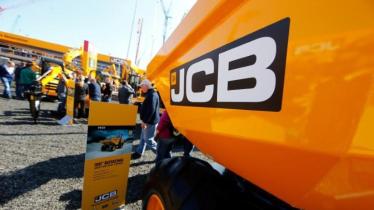British construction equipment manufacturer JCB is betting big on hydrogen technology, as it rolled out its 50th hydrogen combustion engine off the production line as part of the development process.
With an investment of 100 million pounds and a team of 150 engineers working on the project for nearly two years, the company is already powering prototype backhoe loaders and loadall telescopic handlers with its hydrogen engines. Recently, it also unveiled a mobile refuelling bowser — designed and built inhouse — to take the fuel to the machines. The tanker has enough hydrogen to fill 16 hydrogen backhoe loaders and is able to be transported either on the back of a modified Fastrac tractor or on a trailer.
At the heart of the project is the UK’s legally binding requirement to reach net zero emissions by 2050.
“The JCB engineering team has done a fantastic job to develop a brand-new hydrogen engine. They have gone back to first principles to completely re-design the combustion process to work for hydrogen. In doing so, they have achieved two major things — secured JCB’s place in history as the first construction equipment company to develop a fully working combustion engine fuelled by hydrogen and steered us towards the production of a landmark 50 hydrogen combustion engines,” said JCB chairman Lord Bamford.
The company is also eyeing India, which is its largest market outside Europe, to manufacture its hydrogen combustion engines. Without giving a timeline, Bamford said: “We are investing in India all the time, more than any other part of the world… If we make hydrogen engines commercially, we would be making them in India as well.” Bamford was addressing a select group of journalists from India at the company’s global headquarters in Rocester, UK, recently.
In India, JCB has been making engines since 2011, so hydrogen combustion engines are an exciting prospect for the company. “Hydrogen is a mobile fuel, perfect for the Indian market. In line with the Government of India’s National Hydrogen Mission, as the hydrogen economy develops in India, the opportunity for this zero CO2 fuel for use in construction machinery is significant,” said Deepak Shetty, CEO and managing director of JCB India.
JCB’s commitment to reducing emissions goes back almost 25 years and the latest diesel engines designed to comply with European Stage-V regulations have already delivered a 97% reduction in NOx emissions since 1999 and a 98% reduction in particulates. As claimed by the company, JCB machines today use 50% less fuel on an average than those manufactured more than a decade ago – delivering significant carbon dioxide reductions and saving customers’ money on fuel.
As part of its hydrogen development, JCB also investigated its use in fuel cells and in July 2020, unveiled the construction industry’s first ever hydrogen powered excavator – a 20-tonne 220X. For the time being, JCB has concluded that fuel cells are too expensive, too complicated, and not robust enough for construction and agricultural equipment.
Consequently, hydrogen engine seemed to be the technology to go the zero-carbon way.
“The unique combustion properties of hydrogen enable the hydrogen engine to deliver the same power, the same torque, and the same efficiency that powers JCB machines today, but in a zero-carbon way,” said Tim Burnhope, chief innovation and growth officer at JCB, while showcasing the locally developed hydrogen combustion engine to the group of Indian reporters.
“Hydrogen combustion engines also offer other significant benefits. By leveraging diesel engine technology and components, they do not require rare earth elements and critically, combustion technology is already well proven on construction and agricultural equipment. It is a technology which is cost effective, robust, reliable and well known throughout not just the construction and agricultural industry, but the whole world,” added Bamford.
Meanwhile, the company aims to increase exports from its unit in India, where every second construction machine sold is a JCB, from 10% five years ago to 45% of its output this year, said Graeme Macdonald, its chief executive officer.
JCB is the world leader in backhoe loaders and loadall telescopic handlers, with a market share of about 55% and 33%, respectively. With a turnover of 4.4 billion pounds in 2021, it retailed about 95,650 machines during the year, compared to 3.1 billion and 74,590, respectively, the previous year. India had a 23% revenue share in 2021.
(The author was in the UK at the invitation of JCB)
